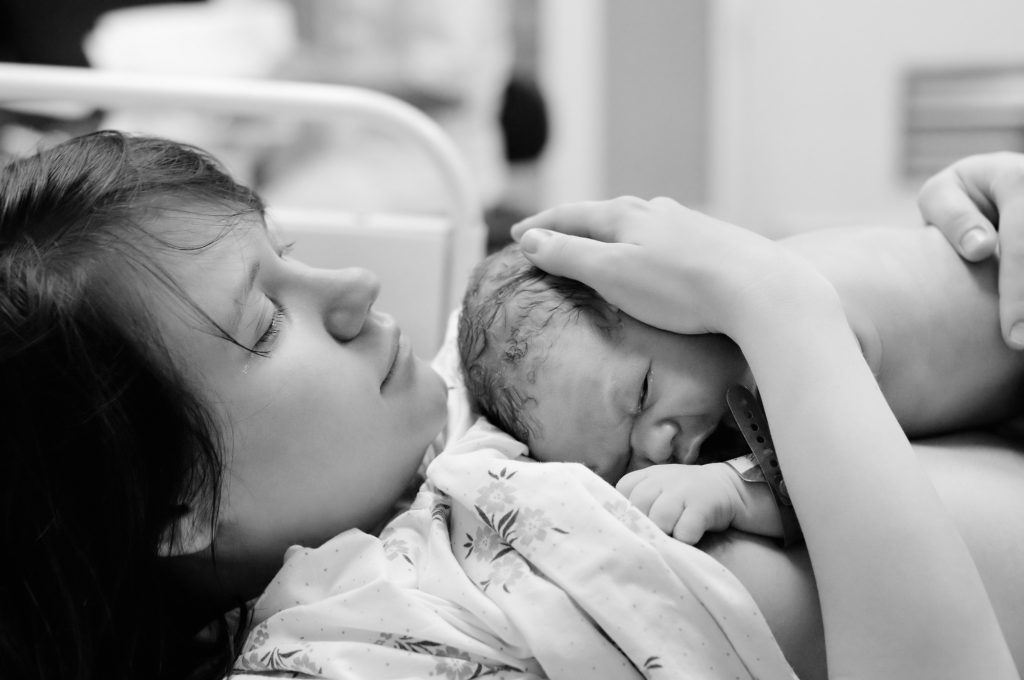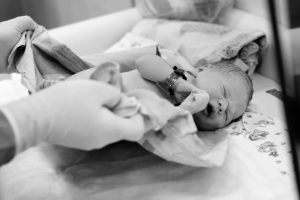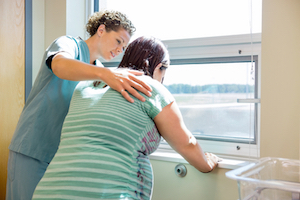Roughly 300,000 babies are born in Australia each year. Of those births approximately 30%, or 90,000 babies will be born by caesarean section. That is a lot of you who are out there likely feeling quite unsettled by new research that suggests that C-section births are linked to possible developmental delays later in life.
The study out of Melbourne University analysed the NAPLAN results of a sample of 5,000 year 3 students. The developmental delays they uncovered across the key skills of grammar, numeracy, reading and writing were found to be equivalent to missing approximately 35 days of school a year. Pretty scary right?!
My sister and I were both born by C-section in the 1980s. In my case it was an emergency caesarean after I went distress during labour. Neither my sister nor I have experienced any developmental delays. I have always been a high achiever excelling at school and graduating from University with first class honours.
Whenever research like this is released, everyone has their own story. In my experience the research doesn’t hold true but others may have a different experience. In the case of these findings, the researchers found a correlation between C-section births and later developmental delays. They did not find causation and could not explain the linkage to cognitive delays in the findings. This is not a case of a clear-cut causal relationship, unlike smoking being a cause of lung cancer or excess consumption of sugar being linked to obesity.
The researchers themselves have admitted that further study needs to be done so let’s not get ahead of ourselves just yet. As a community we should exercise caution when it comes to interpreting the results of a study, particularly when we may only read a click-bait headline as we scroll through Facebook. Before we start the uproar or the fear mongering there are a few essential facts we need to remember.
Mothers have choice in how they birth
And to deliver by C-section or not is just one of those choices. In Australia we are so fortunate to have world-class healthcare options available to us. We can choose where to have our baby, who our doctor will be, if we will use drugs during labour and so on. Those choices need to be respected and taken under the guidance of healthcare professionals. The day our kids are born and how we birth them is but one day in a lifetime of challenges that make childbirth look like a walk in the park.
C-sections save lives
Since the introduction of caesarean sections the infant and maternal mortal has reduced dramatically. Caesareans save lives. It probably saved my life and my mother’s life when she was rushed to theatre as my heart rate was dropping. Regardless of the argument about whether the elective caesarean rate is too high, for many women it is a choice between life and death.
Caesareans are not the easy way out
I delivered both of my babies naturally and as much as I went through agony for those hours I was in labour, it looked like nothing compared to recovery that I saw caesarean mums experiencing. You might skip the labour (although for some women, they get the double whammy of the lengthy labour with a C-section at the end) but you get a big scar and a much longer and more painful recovery. I wouldn’t call that easy…
As we have conversations about these findings, or others that relate to the wellbeing of our children, remember that we don’t need to draw battle lines on every (or any?!) issue. Let’s make it about the findings and not the emotion of how we birth our babies. After all, don’t we all want the same thing for our kids?














